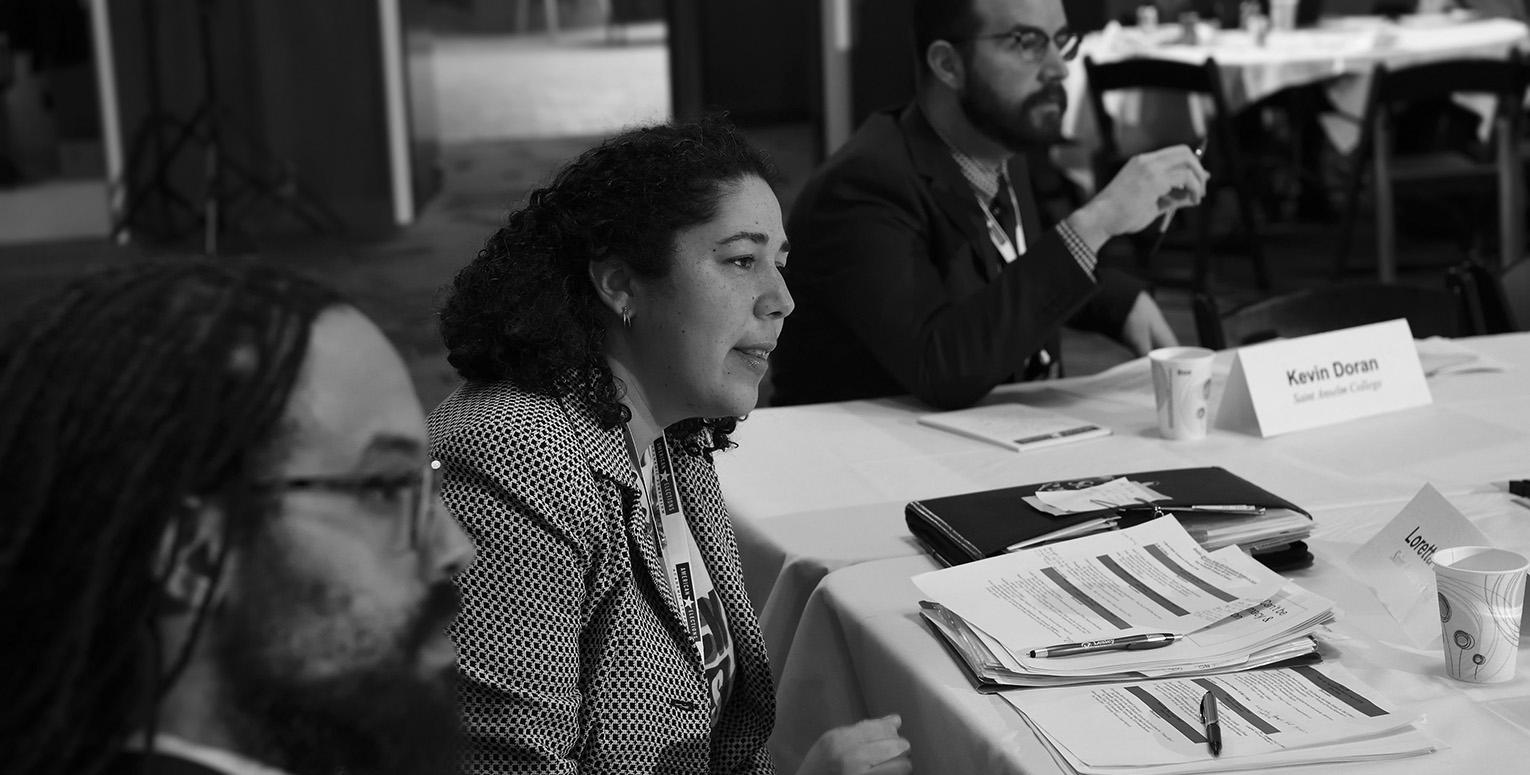Academic Symposium discusses gender and white supremacy during 2016 election
March 29, 2017
Scholars from colleges and universities across the country gathered to discuss the outcome, meanings and implications of the 2016 elections. On Saturday, March 18, Saint Anselm College hosted The American Elections Academic Symposium at The New Hampshire Institute of Politics. This conference is held every two years, after either a midterm or presidential election. This year’s symposium, “Broken: Barriers, Parties and Conventional Wisdom”, was the third in the series.
Junior Politics major Andrew Shue believes that this conference was particularly popular because of “the upset for Hillary Clinton losing the election to Donald Trump”. According to the symposium pamphlet, this year’s conference presentations focused on conventional wisdom, and debated whether the conventional wisdom held in the 2016 elections.
Saint Anselm Professors Chris Galdieri and Jennifer Lucas of the Politics Department, and Tauna Sisco of the Sociology Department worked to organize this event. There were eight different panels that met throughout the day, each analyzing different aspects of the election.
Panel 1 included both a “Diminishing Returns Conference” and “Reflecting Back: Institutions and the Impact on Politics”. Panel 2A: “Online Presence: The Impact of Social Media” included speakers who discussed how social media sites such as Twitter impacted the election, and also the implications on future elections.
Panel 2B: “The Candidate Brand–Image in 2016” focused on how Trump built his image as a politician. Father Jerome Day O.S.B. of the English Department presented a talk on “How News Became Trump’s Ad Man” during this panel.

Professor Loretta Brady of the Department of Psychology.
Panel 3A: “Politics and Fear” featured a presentation entitled “What isn’t broken can’t be fixed: White Supremacy and the 2016 election” from Saint Anselm’s Dr. Loretta Brady of the Department of Psychology and R. Jamal Downey from University of Massachusetts, Amherst.
Panel 3B: was titled “The Trump Effect” and discussed the effect of Donald Trump’s candidacy and presidency on America. Panel 4 included “Undue Influence and Electoral Politics”. Panel 4B on “Electoral Politics” included a presentation from Saint Anselm’s Dr. Elizabeth Ossoff and Dr. Elizabeth Rickenbach of the Psychology Department titled “The Role of Age and Gender in the 2016 Presidential Election”.
The symposium also welcomed the Keynote Speaker, Dr. Bethany Albertson, associate professor of political science at The University of Texas at Austin. The conference then concluded with a dinner in the President’s Dining Room.
Cody Aubin is a junior political science major at Saint A’s who attended and worked at the event. Aubin stated that “It was very interesting to listen to the many opinions and ideas presented by the scholars…from what I heard, the arguments and opinions were interesting and compelling”.
This was the second symposium that Saint A’s has hosted since Aubin began attending the college. Aubin says that “It is beneficial that we host the event due to our role in the primary process as well as New Hampshire being a swing state in the general election. Our exposure and involvement in the process and our scholarly contribution to the study of American politics will only allow for the New Hampshire Institute of Politics and Saint Anselm College to grow”.
Andrew Shue attended the last American Elections Academic Symposium that was held at Saint A’s, which sparked his interest in hearing this year’s presentations. He also feels that this type of event is important to host on our college campus. Shue states that “this type of intellectual work contributes both to the political and academic community, and helps us understand why certain things have happened especially in a climate where everyone was certain of a certain outcome”.
He claimed that the symposium-style setup for presentations was very beneficial, since afterwards, speakers got the opportunity to receive feedback from other professionals. Shue says that these professionals “have a much bigger depth of experience and know how to critique intellectual academic work”.
This Symposium posed questions for our political future, such as What does the 2016 election spell out for the future and how does this affect us?


